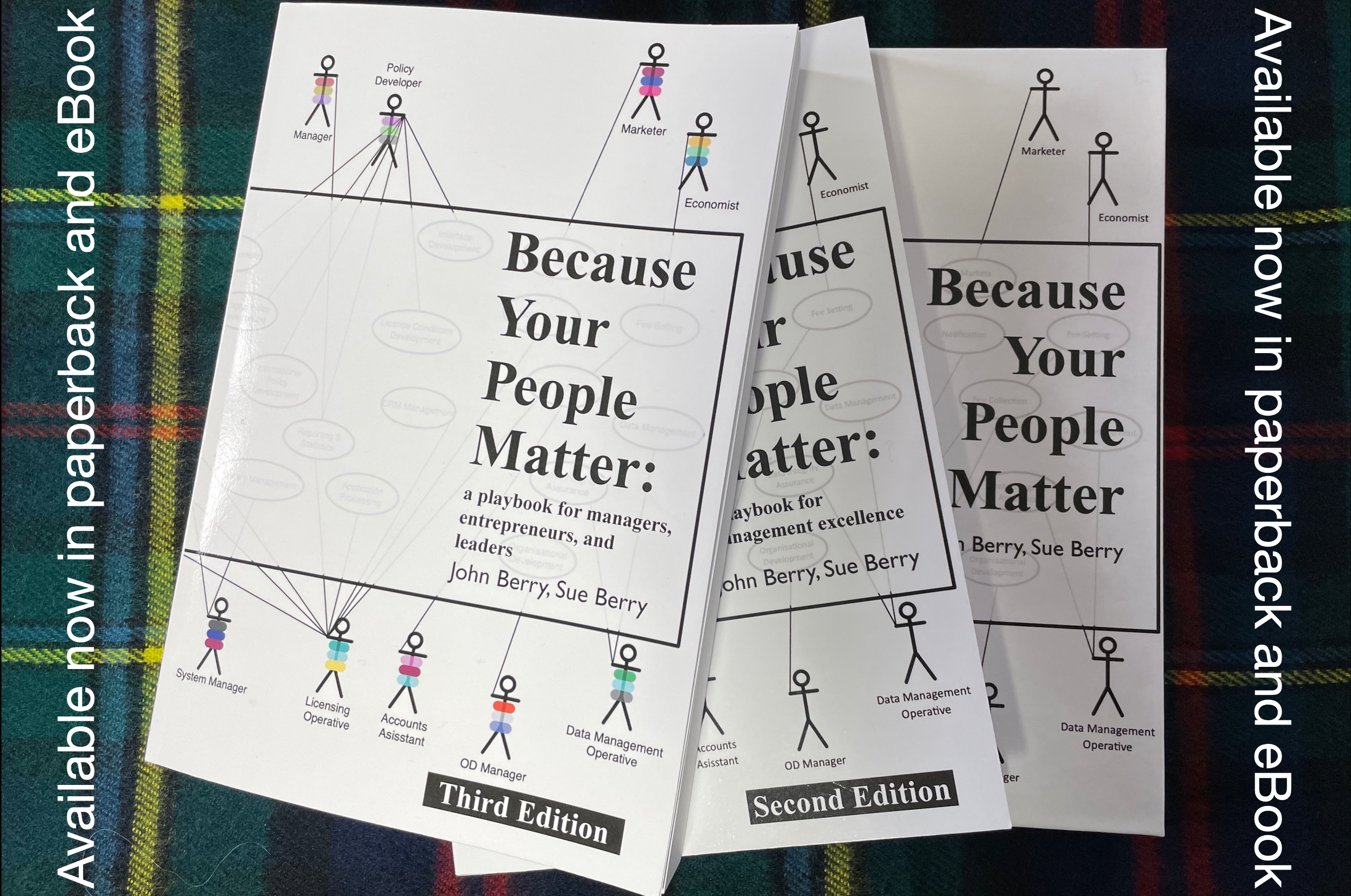What Are OD and HR?
What Are OD and HR?
Written by John Berry on 9th May 2017. Revised 22nd February 2025.
3 min read
Organisational development (OD) is different from human resource management (HRM).
HRM (or just HR) is the discipline that defines what managers, entrepreneurs, and leaders should do to get the best from their people across the employment cycle. This is shown as a cycle from when an employee enters a firm at recruitment and leaves at termination.

This employment cycle, managed by HRM, sustains a status quo and involves central HR activities. It aims for an established state of affairs to realise certain organisational outcomes like turnover, profit, safety and quality.
 HR activities are often wrongly assumed by HR professionals to be a suite of 'best practice' policies and procedures. 'Best practice' wrongly assumes that all firms and organisations are the same. Each activity must instead embrace appropriate practice based on what the firm is trying to achieve. Each HR practice must be based on evidence of what works for that firm and its objectives. This point can be amplified by considering each of the activities in turn above and considering how the activity would differ for different types of organisation.
HR activities are often wrongly assumed by HR professionals to be a suite of 'best practice' policies and procedures. 'Best practice' wrongly assumes that all firms and organisations are the same. Each activity must instead embrace appropriate practice based on what the firm is trying to achieve. Each HR practice must be based on evidence of what works for that firm and its objectives. This point can be amplified by considering each of the activities in turn above and considering how the activity would differ for different types of organisation.
Strategic HR is then concerned with how each of these discrete activities can be changed and improved to support strategy. If any one of these discrete activities fails, one or more OD interventions will be needed to reset the maintenance process.
Learn more about HR - read our latest book, Because Your People Matter.
Organisational development, on the other hand, contains all the activity that causes change to that status quo. This is shown below.

OD begins with the development of strategy – the mission, values and vision of the organisation - and goes on to define the various activities needed to achieve those.
OD activities are completely dependent on the firm and its objectives. OD outcomes take more time to realise. Each activity is specifically crafted to achieve part of the desired outcome. And each is interlinked. The technology that a worker uses can be changed. But whether they can exploit it depends on their individual human characteristics. As a result, jobs may need to be re-designed or new staff hired and systems of work modified.
As a result of the bespoke nature of OD and how the many activities are interdependent, the discipline makes extensive use of modelling.
Learn more about OD - read our latest book, Because Your People Matter.
The ultimate outcome of OD is change that in turn yields achievement of the strategy. Once change is embedded, HRM takes over to stabilise outcomes.
TimelessTime is a firm that supports managers, entrepreneurs, and leaders in all aspects of OD and HRM. Check out all of TimelessTime's services.